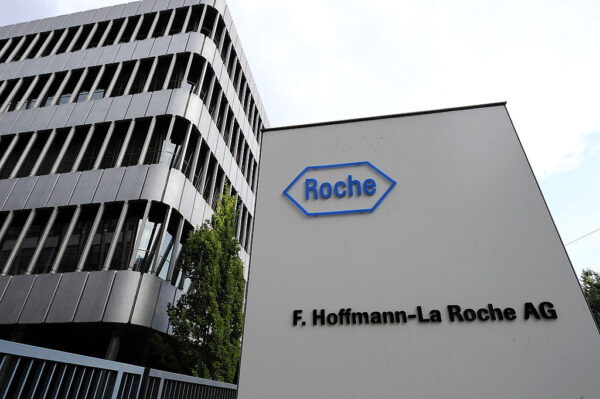
Roche is expanding its immunology pipeline by acquiring a Roivant Sciences subsidiary whose Phase 3-ready drug candidate for inflammatory bowel disease addresses a promising novel target that pits the Swiss pharmaceutical giant against contenders from Merck and Sanofi.
According to deal terms announced Monday, Roche is paying $7.1 billion up front to acquire Telavant, giving it rights to commercialize its main asset, RVT-3101, in the U.S. and Japan. The deal also comes with a $150 million near-term milestone payment tied to the start of Phase 3 testing in ulcerative colitis.

With the Rise of AI, What IP Disputes in Healthcare Are Likely to Emerge?
Munck Wilson Mandala Partner Greg Howison shared his perspective on some of the legal ramifications around AI, IP, connected devices and the data they generate, in response to emailed questions.
The Telavant drug, RVT-3101, is in development for the two main types of inflammatory bowel disease (IBD), ulcerative colitis and Crohn’s disease. Ulcerative colitis mainly affects the colon and rectum while Crohn’s disease affects the entire gastrointestinal tract. The drug is an antibody designed to block tumor necrosis factor-like ligand, or TL1A, a protein associated with both intestinal inflammation and fibrosis.
Results from a dose-ranging Phase 2b study in ulcerative colitis were released in June. Roivant reported the drug, administered as a once-monthly subcutaneous injection, was safe and well tolerated across all doses in the 245 patients who received the experimental treatment. Results also showed signs of efficacy. At the expected Phase 3 dose, Roivant said clinical remission was achieved by 29% of patients at week 14 and by 36% of patients at week 56; endoscopic improvement was observed in 36% of patients at week 14 and by 50% of patients at week 56. The results were even better in those who were positive for a prespecified biomarker, a biological indicator of the disease. At the time, Roivant said the expected commercial form factor for the drug would be dosing via an auto-injection device, which would permit patients to administer the product at home.
“The recent Phase 2b for RVT-3101 delivered the first long-term, robust dataset demonstrating improved clinical remission in the maintenance treatment phase,” Levi Garraway, Roche’s chief medical officer and head of global product development, said in a prepared statement. “Given this promising data, we believe that RVT-3101 has the potential to be the first therapy that offers both high efficacy and safety for people with inflammatory bowel disease and the convenience of an at-home, subcutaneous administration.”
TL1A is a competitive target. Earlier this year, Merck struck a $10.8 billion deal to acquire Prometheus Biosciences and its Phase 3-ready antibody, PRA023. A Phase 3 test for that drug candidate is planned in ulcerative colitis. Sanofi entered the TL1A chase at the beginning of October, striking a deal with Teva Pharmaceuticals to share in the development of its experimental TL1A-blocking drug. Sanofi is paying €469 million (about $500 million) up front; another €940 million (about $1 billion) is tied to development and commercialization milestones.
Sanofi and Teva are sharing equally in the development costs. Sanofi will lead the development of the planned Phase 3 program. If the drug is approved, Teva will lead commercialization efforts in Europe, Israel, and some other countries. Sanofi will lead commercialization efforts in North America, Japan and other parts of Asia, and the rest of the world.
Blocking TL1A has potential applications in many diseases characterized by inflammation and fibrosis, including rheumatoid arthritis, atopic dermatitis, intestinal fibrosis, and pulmonary fibrosis. In an investor presentation, Roivant said placing RVT-3101 in Roche’s hands could allow for more rapid expansion of TL1A-targeting antibodies for additional indications.
In the near term, the focus is on IBD. In addition to the planned pivotal study in ulcerative colitis, a separate Phase 2 test of the antibody is ongoing evaluating the Telavant drug in Crohn’s disease. Rights to RVT-3101 outside of the U.S. and Japan belong to Pfizer, which teamed up with Roivant late last year to form Telavant and owns a 25% stake in the Roivant subsidiary. With Roche’s acquisition of Roivant’s stake, it also gains the right to work with Pfizer in the development of a next-generation TL1A inhibitor, which is now in early clinical development. The Telavant acquisition is expected to close by the end of this year or in early 2024.
Photo: Giuseppe Aresu/Bloomberg, via Getty Images














